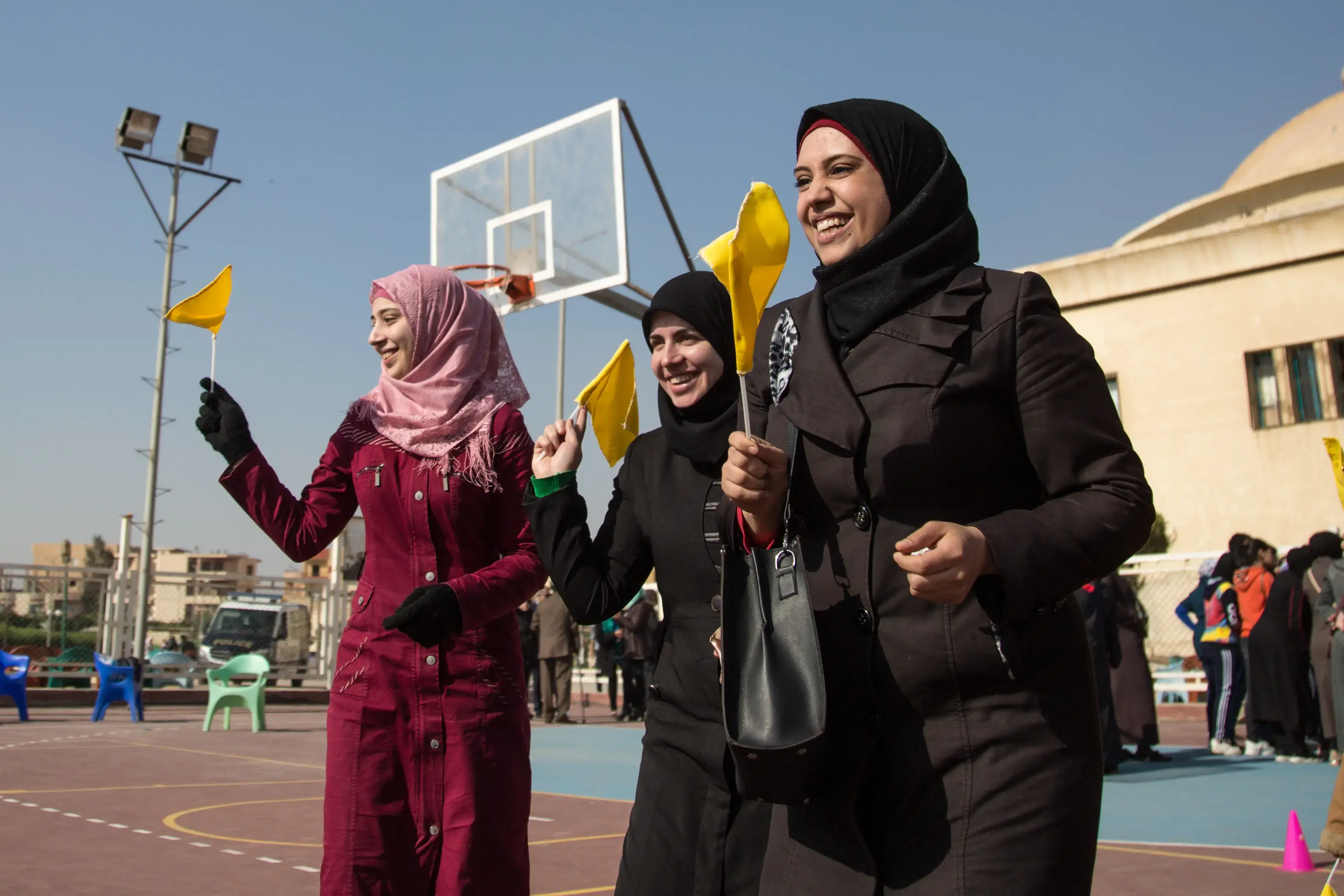During conflicts, natural disasters and public health emergencies, sexual and reproductive health needs are often overlooked – with staggering consequences. Pregnant women risk life-threatening complications without access to delivery and emergency obstetric care services. Women may lose access to family planning services, exposing them to unintended pregnancy in perilous conditions. Women and girls also become more vulnerable to sexual violence and exploitation.
UNFPA moves quickly when emergency strikes, to protect the reproductive health of communities in crisis. It also provides assistance to stricken communities as they move beyond the acute crisis and enter the reconstruction phase. UNFPA also deploys trained personnel and provides other crucial support to affected populations, working to ensure the needs of women and girls are served through preparedness, emergency and reconstruction phases.
Programme overview
Egypt is currently hosting around 480,000 registered refugees and asylum-seekers from 62 countries, with a 64 percent increase compared to 2022 with major conflicts across its borders.
Refugees in Egypt live in urban settings across the major cities, with most new arrivals coming from Khartoum in Sudan. There has been a 242% increase in Sudanese registering as refugees since the start of the Sudan crisis in mid-April 2023, compared to a 61% increase of all registered refugee nationalities during the same time period.
Since the onset of the conflict in Sudan, Egypt has been a primary refuge for mainly Sudanese women and children seeking safety. However, due to the escalating violence in Sudan in recent months and the limited prospects for a near-term ceasefire, the civilian population continues to be forced to flee a country on the brink of famine.
Moreover, the needs of Syrians and host communities are also higher than ever, in light of the cumulative impact of 12 years of conflict, climate-related challenges, natural disasters, and various other socio-political factors.
Additionally, the current crisis in Gaza is also prompting programs in Egypt to be prepared to receive medical evacuations from Gaza, and also to facilitate the transportation of humanitarian supplies into Gaza.
UNFPA continues to ensure the provision of life-saving and comprehensive gender-based violence (GBV) and reproductive health services for refugee women and girls in Egypt, regardless of their nationalities or refugee status.
UNFPA Egypt’s humanitarian programme has responded to several crises in the region in recent through providing essential support to reproductive health and protection services. The programme currently aims to provide effective and rapid implementation of interventions to refugees and other vulnerable migrants. The main focus of the programme is the provision of comprehensive SRH services and the prevention and/or mitigation of SGBV risk and consequences among the refugee population.
UNFPA interventions
Given the primary focus of UNFPA on issues of sexual and reproductive health, and gender-based violence, the majority of projects require cross-cutting interventions and inter-sectoral collaboration.
UNFPA currently supports 13 Women and Girls Safe Spaces (WGSS) in seven governorates (Giza, Qaliubiya, Sharqeya, Damietta, Aswan, Alexandria, Cairo), with its partners the Ministry of Youth and Sports and Etijah NGO, offering comprehensive gender-based violence and reproductive health services for refugees.
In these Safe Spaces, women and girls come together, develop social networks and acquire important information and skills. Safe Spaces offer holistic survivor-centered multisectoral GBV services that include case management and referral for specialized services. Social empowerment activities are additionally offered to women with referral to more specialized agencies for further employability support to support the women’s livelihood as well as their local integration in Egypt,. In addition, creative techniques are employed to address the psycho-social wellbeing of women and girls and enable discussions around GBV. These techniques include community theatre, storytelling, music therapy, and art therapy.
The Safe Spaces hold awareness-raising sessions regarding GBV and RH, including Menstrual Health and Hygiene Management for adolescent girls. Community mobilization events are also held regularly, jointly with other UN agencies and partners.
Access to quality reproductive health information and services for women and girls is provided through the Safe Spaces, including Dignity Kits and menstrual products. UNFPA’s humanitarian program also runs a comprehensive cash assistance is provided to meet immediate needs of survivors of violence and women-at-risk.


